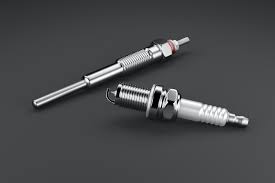Why Don’t Diesel Cars Use Spark Plugs?

If you've ever wondered why diesel engines don’t use spark plugs, you're not alone! While petrol (gasoline) engines rely on spark plugs to ignite the air-fuel mixture, diesel engines operate a bit differently. Here’s why:
🔥 How Diesel Engines Work
Unlike petrol engines, which use spark ignition, diesel engines use compression ignition. Here’s what happens:
- Air is compressed inside the engine cylinder to extremely high pressures.
- This compression causes the air temperature to rise significantly.
- When diesel fuel is injected into the hot, compressed air, it ignites automatically — no spark plug needed!
⚙️ Why No Spark Plugs?
- High Compression Ratio: Diesel engines operate at much higher compression ratios than petrol engines. The heat generated by compression alone is enough to ignite the diesel fuel.
- Fuel Efficiency: Compression ignition makes diesel engines more fuel-efficient compared to petrol engines.
- Different Fuel Properties: Diesel fuel is less volatile than petrol, so it doesn’t need an external spark to ignite.
🔍 What About Glow Plugs?
While diesel engines don’t use spark plugs, they often use glow plugs in colder conditions. Glow plugs help preheat the air in the combustion chamber to ensure smooth ignition when starting a cold engine.
🚘 The Bottom Line
Diesel engines are designed for efficiency and durability, and their reliance on compression ignition eliminates the need for spark plugs. Instead, they use the heat from compressed air to ignite fuel, making them unique and powerful!
Want to learn more about car maintenance and parts? 🛠️
👉 Visit SparesWorld for all your car care needs and tips.

 Loading..
Loading..